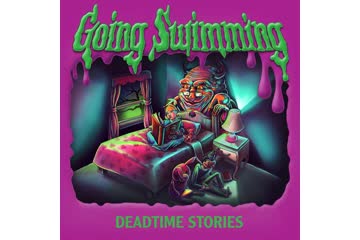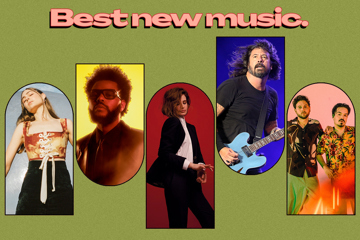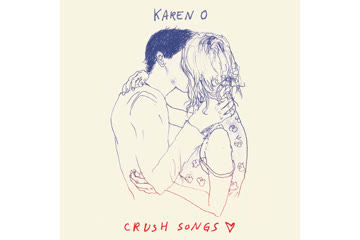John Carpenter: “I’ve Been Criticising ‘Halloween’ For A Long Time, So I Stepped Up”
"I might come back and make a movie in a year or two, let’s see. They’d have to pay me well. And pamper me. But, yeah, sure.”
“Everything about my life is a surprise. I’m happy with what I’ve done. I got to be John Carpenter. Who wants anything else?”
Quotable as ever at 74, John Carpenter has moved into an unexpected stage of his career. The master of genre cinema — director of the original Halloween, The Fog, The Thing, Assault On Precinct 13, Escape From New York, Big Trouble In Little China and many more — hasn’t directed a film since 2010’s The Ward, and hasn’t made one of his own productions since 2001’s Ghosts Of Mars.
But recent years have found increasingly acclaim for Carpenter’s music, with reissues of the classic synth scores and never-used material (the Lost Themes series), tours in which he performs his most iconic scores live, and new compositional work.
2022 has found Carpenter scores — made in collaboration with his son (Cody Carpenter) and godson (Daniel Davies, son of The Kinks’ Dave Davies) — for three films: the latest screen adaptation of Stephen King’s Firestarter, the Foo Fighters’ horror parody Studio 666, and the thirteenth and, apparently, final film in the Halloween series, Halloween Ends.
Carpenter was recruited to return to the revived series with 2018’s Halloween, helming all three of David Gordon Green’s new films, the first time he’d been involved with the series since scoring 1982’s Halloween III: Season Of The Witch.
“Jason Blum, the producer, Mr. Horror,” Carpenter recounts, eating a popsicle while he does, “he came to me and said: ‘Listen, they’re going to make these sequels. Why don’t you come aboard, do the music, and you can be associate producer and shepherd it through?’. And I thought, ‘Well, I’ve been sitting around and criticising [these movies] for a long time, so why don’t I step up.’ And I did.”
Don't miss a beat with our FREE daily newsletter
The new Halloween scores found Carpenter going “back to the original themes, refurbishing them with these new technologies we have”, then riffing new ideas steeped in those old motifs. Part of the reason that his score for the original 1978 Halloween has held up, Carpenter thinks, is due to its simplicity.
“You have to understand, I’m Mr. Minimal Chops. So it has to be simple,” he laughs. “It started with the piano. That’s always a good place to start. It had a little ticky beat behind it, and I just added some electronic stuff. It’s really simple. Simple but not minimalistic.”
Writing a score, Carpenter offers, is “an expression of the movie I see before me”, with the same approach, same passion, applied whether he’s been involved in the filmmaking or not. He first started writing scores “as a practical element”, a financial necessity in his early days.
“When you’re in film school, as I went to film school, you don’t have any money,” Carpenter offers. “When you’re making a movie it’s el cheapo, you have to beg, borrow and steal. So, I had the ability of making music and I put in on my own films. Then, when we hit low-budget filmmaking, the same thing happened. We didn’t have any money for this, so I’ll do the music.”
His trademark synthesiser sound was also a practical approach: synths offering him the ability to “sound big – like a whole electronic orchestra” without the financial burden of an actual orchestra.
Carpenter traces his love of electronic elements to a formative viewing experience. “When I was a kid, in 1956, I was eight years old, and I saw this movie called Forbidden Planet. And it had an all-electronic score to it. No instruments. By this married couple called the Barrons.
“And it was transformative. That movie made me want to be a director. And, beyond that, because I’d never heard anything quite like it, it transported me to another place. It was a formative experience simultaneously, the movie and the music.”
Growing up in Kentucky, Carpenter’s father was a music professor. First, dad attempted to teach young John violin (“unfortunately I had no talent”). Instead he switched to piano, then picked up guitar. “Then rock’n’roll came to be with The Beatles, and I fell in love,” Carpenter recalls.
As teenager, Carpenter formed a R&B/R’n’R coverband, playing local fraternities. He harboured rock dreams, but sees those as universal. “Everybody does,” Carpenter says. “Every human being on the Earth. Well, maybe not Putin, I don’t know if he’s had rock dreams.”
Beginning with the first Lost Themes release in 2015, Carpenter has even found himself touring periodically; his live show growing to be a festival-friendly set of iconic movie themes. It’s another unlikely turn for Carpenter; in their day, he says, no one cared about his scores, it was only years later they grew to be appreciated outside of the films.
Getting to tour was, in some ways, getting to live out his old rock dreams. “We had a tour bus, and away we went,” Carpenter offers. “It was fabulous! I had stage fright at first, but after the first show I got over it. And, after that, I just started to enjoy myself. Working with my son and my godson, playing live with them and the rhythm section of Tenacious D, it’s just sensational. Wow!”
The shows, he continues, are like “a nostalgic thing” for audience. “When we play, we have part of the movies projected behind us, projected huge. The concert started with Escape From New York, and the audience remembers the movie, so immediately they would be into it. They’re remembering the movie, and remembering their life.”
Carpenter knows where the crowds are coming from. He too has “nostalgia for movies [he] saw as a kid”; like Forbidden Planet. Of course, he doesn’t share his audience’s nostalgia for his films. “I don’t want to see them, I don’t want to think about them. They’re done. It’s over with. Thank God I don’t have to watch them,” he laughs.
Carpenter is clearly chuffed by this late-career turn, his new life as “a movie director playing [his] scores”. But is there any chance he’s going to return to being an active movie director? “I might come back and make a movie in a year or two, let’s see,” he says. “They’d have to pay me well. And pamper me. But, yeah, sure.”
Is he working on anything specific? Are their new ideas brewing? “I can’t tell you that. But, yes.”







